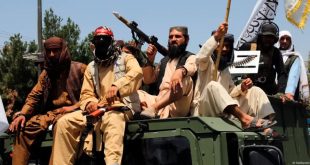By Khan Wali Khan Basharmal: Historically different cultures have laid the foundations of civilization in different periods in different areas. The concept of the city-state and then the modern state has been taken from the early Sumerian geopolitical civilization and culture, where they contributed a lot through time, and made it a role model for later nations and civilizations. These influences had given a new shape to religion, history, philosophy, and then science to humanity through modern civilization. Later, these notions of communication, writing, early bureaucracy, and politics gave a new outline to transactions, confines, infrastructure, and national and international relations in Greek, Italian, Arab, and Asian and then the European states.
The commencement of new ideas and struggles had challenges with their progress and were met with resistance by different problems in different times. However, philosophically the strength of enlighten political thoughts and the work force underwrite their stability and sustainability through the passage of time, and then in the last stage their internal reality converts into external reality. The exact form of this external reality is the result of internal contradictions which we can’t define by our macro management. Afghanistan, the land of curiosity and novelty, has undergone different transformations and is still making progress based on experience, while it has contributed a great deal to the history of knowledge. Current Afghanistan tells the story of third world countries and plays a role of classical development where technology of the first world has reached it and is knocking on the minds of the people ready for future changes.
In this rough situation, many enlightened elements stood with courage to build, own and transfer a bright Afghanistan to the Afghan people. The rule of dictators and the enlightened elements taught a lot to the people of Afghanistan. The enlightened elements always raised their voices against the brutal, vicious and sanguinary acts and blind brutality of anti-Afghan insurgents.
The recent bomb blast in Khost province lashed out and exposed the disloyalties and reprehensible intensions of the current power holders in the proxy war in Afghanistan. They are the real industrial producers of all evils in Afghanistan, after the fall of Taliban: the same wolves introduced by the major powers, for the exploitation and further repression of the Afghan masses. They put pressure and cruelties on the Afghan masses to accept all their illegal rules and dictates. In such chaotic situations, when the enemies are bold and well-equipped, controlling Afghanistan is hard and the local political powers are leading Afghanistan in the very first interest of Pakistan and threats are posed by the current elements surviving in Khost.
Khost, the strategic, agricultural and geopolitical province of Afghanistan, is the leading road to economic stability, strategic relations and progressive political situations. Its earlier start was quite modern, but it was suddenly the victim of unfair, inhuman policies, hindering Khost’s progress. The political, geographical and economic, as well as tribal conflicts were introduced by the Taliban and Mujahedeen.
In this tough situation, the civil movement was led by parliamentarians who sketched the strategic policies to combat ongoing corruption, kidnapping, smuggling, drugs trafficking and inhuman terrorist attacks. They did this through gathering the people and imparting the knowledge of political awareness in a very upright way. All those who were well accustomed to using violence, tribal skirmishes, and political, economic and religious chaos were brought to book, and they were advised to use logical and reasoning methodologies: democratic peaceful demonstrations and asking legal rights for their better, more peaceful life.
This demonstration was actually a capacity building exercise of the people of Khost. The people of Khost were there to ask the government authorities to work for their rights, welfare and peaceful life, but our enemies planned to kill their political awareness. Demonstrations, peaceful rallies and strikes are the constitutional right of the Afghan people. This kind of political awareness and planning paves a way to democracy. Khost is the province laying close to Waziristan, the safe haven of fundamentalists, but with this a kind of confidence and self-assurance; the people are calling peacefully for their rights instead of using violence.
They have said for the first time “No to War” and “No Violence,” and I strongly believe that this is the best way of politics and social consciousness in the modern form. Nobody has the right to answer their peaceful demonstration with bullets. I am wondering, if someone is doing so, then why is the international community silent? But when the question of fundamentalism and war is raised, then the international community blames the Afghans as a terrorist nation. Why do they not raise their voice when someone attacks the innocent people of Khost?
If this is the criteria of judging a nation, then we must consider that there should be change in the criteria of assessing nations. The demonstration was a leading road to the rights of the Pashtun belt and it was a voice for the rights of tribal zone where they are leading lives of misery under the strict rule of FCR (Frontier Crimes Regulations). This law is against humanity, freedom of speech and democracy.
We consider this important to launch mega projects to decrease the conceptual and economic differences between city and village life. We need to try to bring into power the vision of provincial administration, environmental protection, public awareness, coordination among all security sectors, governmental branches (legislative, judicial and executive) and workshops for official and non-official youth and administration. We also need to get rid of distrust, suspicion, illegal disputes and personal rivalry.
A mutual understanding platform should be introduced to promote the work of conflict resolution between tribes without bloodshed or increasing enmities and rivalries. Institutionalization, industrialization and nationalization of different departments are a few great methods for restoring the confidence of the masses of war victims. Giving importance and consideration to the people’s decision makers is a good contribution to freedom of speech and democracy in Khost province. Promotion of arts, literature, intellectual gatherings, media centers and public awareness councils is another constructive idea for Khost province, where this step could contribute to broadening and enlightening the narrow thinking and mindsets of people in tribal zone.
Giving a sense of self-assurance to the deprived and destitute masses of Khost also needs to be planned in future. Many academic and government future experts need to be educated and sent to foreign countries for higher education and capacity building trainings and workshops.
After all, Khost province has to be considered a place of peace, stability, strategic importance and progress based on manpower and broadminded population, while curbing their social, political and strategic problems. Khost province has 15 to 18 strategic transaction ways between south and central Asia. Now is the time to understand the difficulties and the central government needs to help in tackling provincial problems. Industrialization needs to be promoted and a fair educational assessment should be taken in view for meeting modern challenges.
The writer is a lecturer and writes mostly on social, political and security issues. He can be reached at: [email protected]
 Afghanistan Times Latest News and Analysis from Afghanistan and the Region
Afghanistan Times Latest News and Analysis from Afghanistan and the Region




